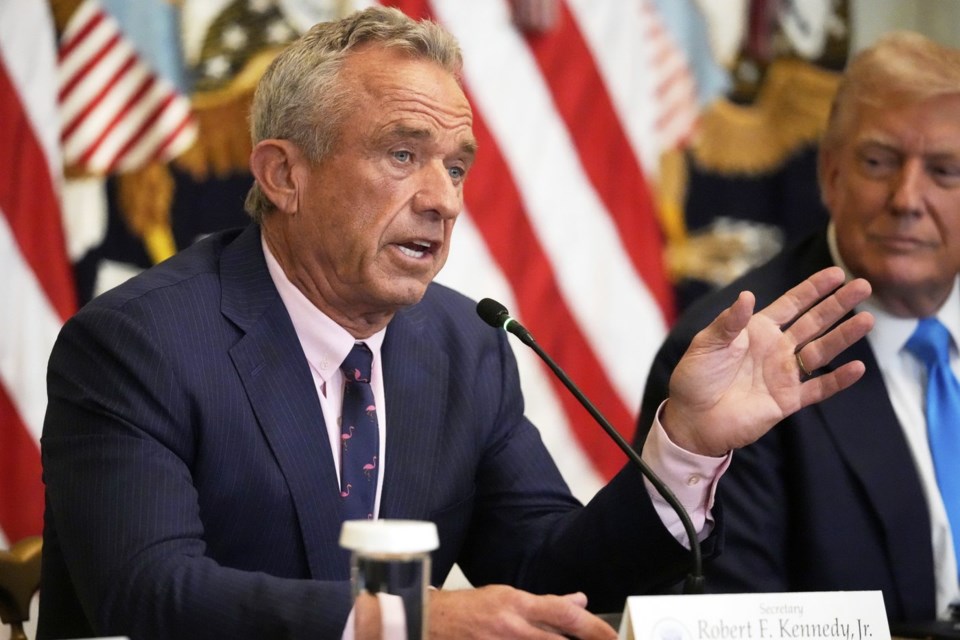WASHINGTON (AP) — The Trump administration can slash hundreds of millions of dollars’ worth of research funding in its push to cut federal diversity, equity and inclusion efforts, the Supreme Court decided Thursday.
The split court lifted a judge’s order blocking $783 million worth of cuts made by the National Institutes of Health to align with Republican President Donald Trump’s priorities.
The court split 5-4 on the decision. Chief Justice John Roberts was among those who wouldn't have allowed the cuts, along with the court’s three liberals. The high court did keep the Trump administration anti-DEI guidance on future funding blocked with a key vote from Justice Amy Coney Barrett, however.
The decision marks the latest Supreme Court win for Trump and allows the administration to forge ahead with canceling hundreds of grants while the lawsuit continues to unfold. The plaintiffs, including states and public-health advocacy groups, have argued that the cuts will inflict “incalculable losses in public health and human life.”
The Justice Department, meanwhile, has said funding decisions should not be “subject to judicial second-guessing” and efforts to promote policies referred to as DEI can “conceal insidious racial discrimination.”
The lawsuit addresses only part of the estimated $12 billion of NIH research projects that have been cut, but in its emergency appeal, the Trump administration also took aim at nearly two dozen other times judges have stood in the way of its funding cuts.
Solicitor General D. John Sauer said judges shouldn’t be considering those cases under an earlier Supreme Court decision that cleared the way for teacher-training program cuts that the administration also linked to DEI. He says they should go to federal claims court instead.
Five conservative justices agreed, and Justice Neil Gorsuch wrote a short opinion in which he criticized lower-court judges for not adhering to earlier high court orders. “All these interventions should have been unnecessary,” Gorsuch wrote.
The plaintiffs, 16 Democratic state attorneys general and public-health advocacy groups had unsuccessfully argued that research grants are fundamentally different from the teacher-training contracts and couldn’t be sent to claims court.
They said that defunding studies midway though halts research, ruins data already collected and ultimately harms the country’s potential for scientific breakthroughs by disrupting scientists’ work in the middle of their careers.
Justice Ketanji Brown Jackson wrote a lengthy dissent in which she criticized both the outcome and her colleagues' willingness to continue allowing the administration to use the court's emergency appeals process.
“This is Calvinball jurisprudence with a twist. Calvinball has only one rule: There are no fixed rules. We seem to have two: that one, and this Administration always wins,” she wrote, referring to the fictional game in the comic strip “Calvin and Hobbes.”
In June, U.S. District Judge William Young in Massachusetts had ruled that the cancellations were arbitrary and discriminatory. “I’ve never seen government racial discrimination like this,” Young, an appointee of Republican President Ronald Reagan, said at a hearing. He later added: “Have we no shame.”
An appeals court had left Young’s ruling in place.
___
Lindsay Whitehurst, The Associated Press




